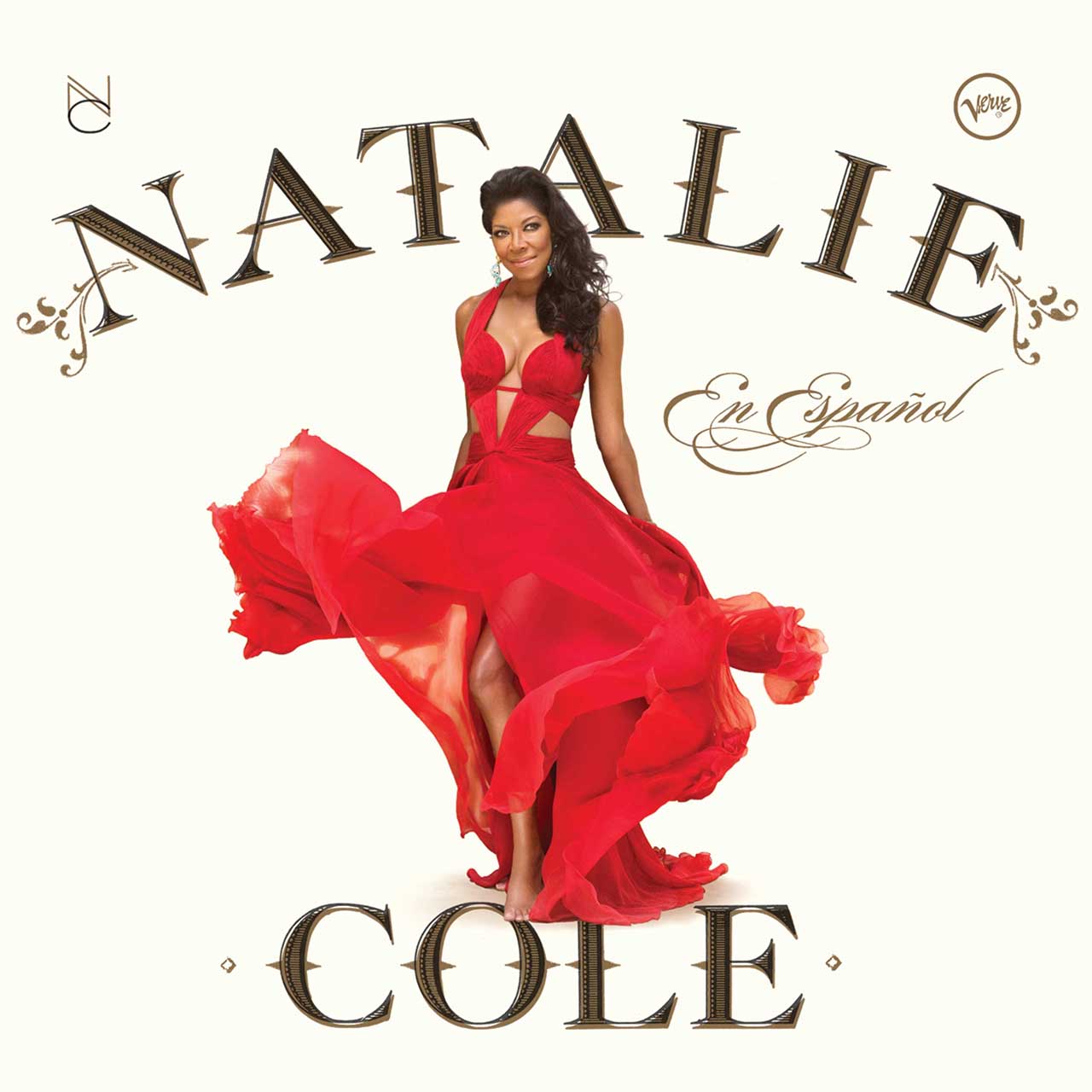As a multiple Grammy-winning producer and songwriter whose work has bridged the Spanish and English-language worlds, Rudy Pérez has often been asked to do another job: dialect coach. “I’m the go-to guy to call when someone doesn’t speak Spanish fluently,” Pérez remembers telling Natalie Cole when they met in a Miami recording studio to make her 2013 album Natalie Cole en Español. (Over the years, Pérez has also worked with Beyoncé, Christina Aguilera, and Michael Bolton on their Spanish albums.)
Listen to the Natalie Cole en Español album now.
“[Natalie] wasn’t fluent in Spanish, but she put in the time to get it right,” Pérez says, vividly remembering the sessions with Cole a decade later. “I would write all the lyrics phonetically, and then we would do 25 different takes, and I’d say, ‘that’s it, that’s the take!’ I said to her, ‘I want you to be so fluent sounding that people are going to say, oh my god, Natalie is fluent in Spanish!’ – and that’s how she sounds. It was a difficult task, but she went through it like a champ.”
“Rudy said, ‘Don’t lose Natalie. Do your R&B inflections, be yourself,” explained Cole, in an interview at the time of the album’s release. A star who had sold millions of albums since the 1970s, she had only a limited understanding of Spanish, but had been exposed to Latin music through her father, Nat King Cole, who recorded three now classic Spanish-language albums that both appealed to Latin American audiences and introduced mainstream America to well-known Latin songs.
“Those Spanish albums that he did were iconic to a lot of Latino kids,” says the Cuban-born Pérez who grew up in Miami, where he has forged his hitmaking career, producing over 70 albums and co-founding the Latin Songwriters Hall of Fame. “They were always playing in my parents’ house since I was little. He was the superstar who took Latin music to the world.”
Natalie Cole en Español includes “Acércate más,” a virtual duet with her father, which brings their voices together in the style of her attention-grabbing 1991 version of “Unforgettable.” Even with the technology available by 2013, it was a difficult task, since Pérez had to work with a 1958 recording of Cole performing live on a Havana radio station. “I had to take that vocal out of there,” says Pérez. “We found guys who could disappear the track as much as possible. I had them cut it all up, and then I took instruments that were used in that recording in 1958 and produced them with today’s sound. When you hear the song, it sounds like she’s standing in front of her dad in the studio.”
Other evergreens previously recorded by her father include “Bésame mucho” and “Quizás, quizás, quizás” – on which she’s joined by Andrea Bocelli. And Natalie Cole en Español goes further afield, with the bossa nova “Mañana de Carnaval” from the 1959 Brazilian film Black Orpheus, and the tango “El día que me quieras” made famous by Carlos Gardel.
Recording a Spanish album had been a longtime desire for Cole, fulfilled after David Foster, who had produced her Unforgettable album, became chairman of Verve Music group and signed her to the label. After considering several other high-profile Latin music producers, she chose Pérez. He says that it was A&R exec Jay Landers’ idea to add several contemporary standards to the album. Pérez and Cole decided on the Santana hit “Oye como va,” “Yo lo amo” (“And I Love Him”), a version of the Beatles’ “And I Love Her” with trumpeter Chris Botti; and Juan Luis Guerra’s “Bachata Rosa,” recorded in duet with Guerra.
Cole need not have worried about being able to deliver a successful Spanish album: Natalie Cole En Español debuted at No. 1 on Billboard’s Top Latin Albums chart and was nominated for three Latin Grammy awards.
Pérez says that he and Cole planned to do a second recording in Spanish, on which she would sing Cuban jazz numbers. But Natalie Cole en Español would be the final album of her prolific career. The last time Pérez talked to her, she was at Cedars-Sinai Hospital in her native Los Angeles, where she passed away from congestive heart failure, following a history of ailments. (Cole had had a kidney transplant in 2009.) She died on New Year’s Eve at age 65.
“Someone like Natalie comes around once in a million years,” Pérez says, recalling Cole’s deferential treatment of musicians, her decisive work ethic, and her laughter in the studio. “It was one of the greatest honors of my life to be able to participate on that album.”




